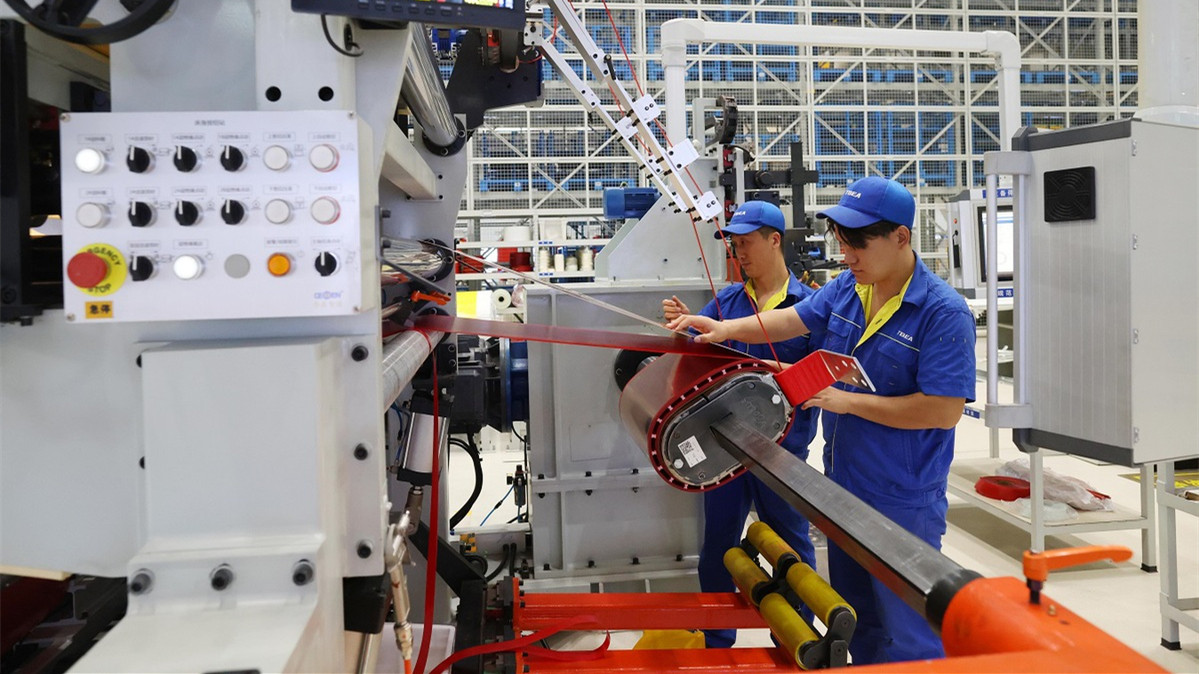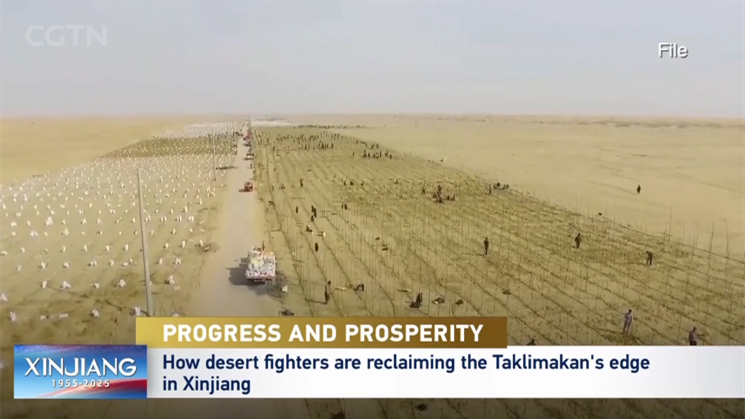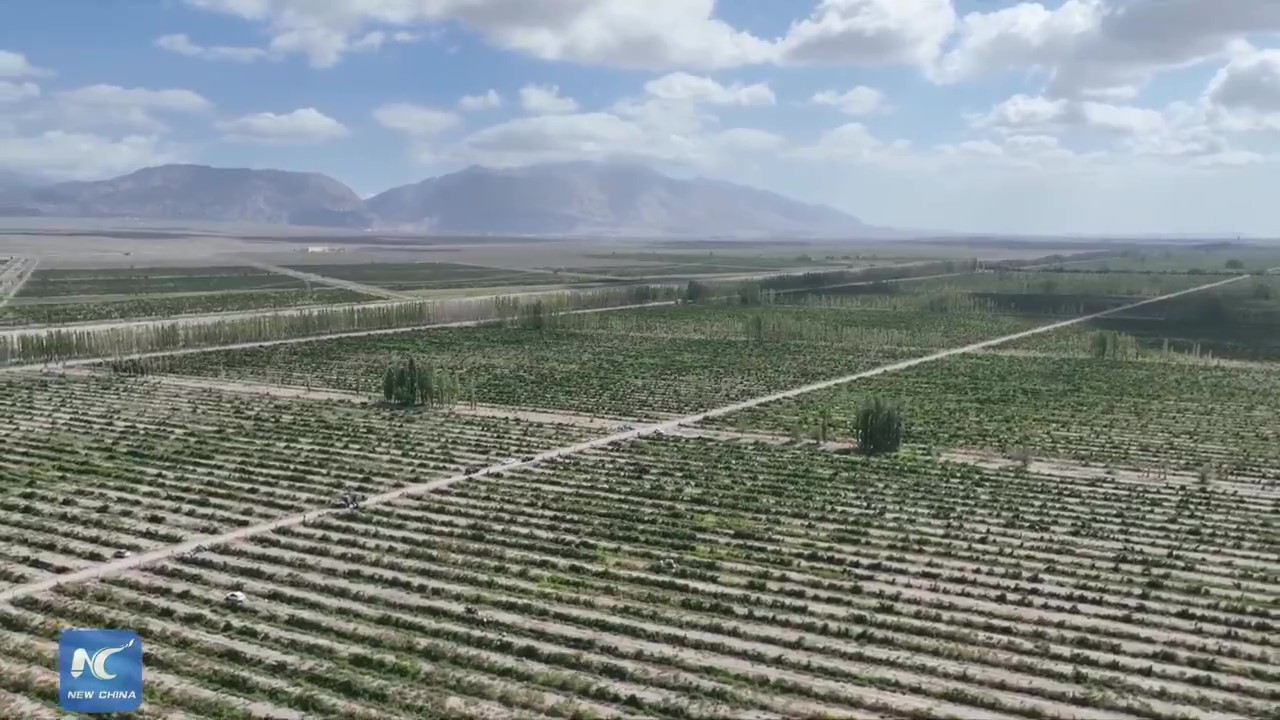
YEARS OF ACHIVEMENTS
This year marks the 70th anniversary of the establishment of the Xinjiang Uygur autonomous region. Reflecting on past decades, Xinjiang, with its unique geographical advantages and diverse cultural heritage, has not only served as a robust frontier for China but also experienced significant economic and social development.
Economically, the region has displayed remarkable vitality. From energy and chemical industries to modern manufacturing, Xinjiang has continuously advanced supply-side structural reforms, driven the transformation of traditional and new growth drivers, and developed a comprehensive industrial system.
As a crucial node on the overland Silk Road, Xinjiang plays an irreplaceable strategic role in the Belt and Road Initiative. Large-scale industrial parks and economic cooperation zones are rapidly emerging, attracting substantial domestic and international investment and invigorating local small and medium-sized enterprises.
The enhancement of the business environment has been a pivotal factor in Xinjiang's high-quality economic development. For instance, in a tempered glass company's production workshop in Yining city, advanced technologies like intelligent manipulators and 3D inkjet glass machines are in operation.
"The company's annual output value has surged from 7 million yuan ($980,098) in 2019 to nearly 20 million yuan in 2024," said Ma Ximing, the company's sales manager, attributing this growth to Xinjiang's continually improving business environment.
Over the past 70 years, Xinjiang's economic development has undergone a historic transformation, evolving from a predominantly public-owned economy to a diverse and dynamic landscape of business entities.
Before the founding of the People's Republic of China, Xinjiang's economy was mainly agricultural and pastoral, with only 363 private workshops producing limited industrial goods such as raw coal, coke, bricks, leather, grain and oil.
With the establishment of a market economy, pioneering entrepreneurs spurred the growth of the private sector, and by the end of 2012, the region boasted 582,800 registered individual industrial and commercial households. Private enterprises have emerged in various fields, including manufacturing and transportation, injecting new vitality into the local economy.
In the new era, Xinjiang has made bold strides in optimizing its business environment. The region has refined its enterprise-related business licensing and established unique mechanisms within the China (Xinjiang) Pilot Free Trade Zone, effectively lowering institutional transaction costs for enterprises.
Additionally, improvements in intelligent online services have streamlined enterprise registration, making the process more convenient and more efficient. By the end of May, the number of registered business entities in Xinjiang exceeded 2.67 million, according to the region's Market Supervision and Administration Bureau.
Foreign-funded enterprises have played a significant role in this growth.
Since the first foreign-funded enterprise was established in 1984, Xinjiang has become home to nearly 2,500 registered foreign-invested enterprises, which have brought capital, technology, and advanced management practices, facilitating Xinjiang's integration with the international market and driving industry upgrades.
In the China (Xinjiang) Pilot Free Trade Zone, foreign-funded enterprises benefit from lower investment thresholds, streamlined cross-border trade, financial service innovations, and efficient government services. While the economy is developing vigorously, Xinjiang has also made remarkable strides in culture, ecological civilization, and ethnic unity.
Known as the "hometown of singing and dancing", Xinjiang's traditional arts have gained national and international recognition through modern media platforms.
The region's vibrant dance culture, characterized by natural and powerful movements, reflects a deep love for life and showcases the enduring charm of Chinese culture. A young local dancer noted that performing on stage connects him to his ancestors' legacy, highlighting the cultural confidence and innovative spirit that continue to invigorate Xinjiang's artistic scene.
In terms of ecological civilization, Xinjiang has always adhered to the principle that "lucid waters and lush mountains are invaluable assets". The region has made great efforts in ecological protection and ecological civilization construction in recent years, formulating strict management measures and long-term mechanisms for desert governance, water protection, and grassland restoration.
The rapid development of the local new energy industry and the launch of clean energy projects have infused the regional economy with continuous green momentum.
Xinjiang is an important part of the Chinese nation, where diverse ethnic groups coexist and learn from one another. Over the past 70 years, these groups have collaborated to advance regional development, fostering deep friendships through shared historical and cultural experiences. Ethnic unity remains a cornerstone of governance, with initiatives spanning schools, communities, and governments at all levels.
As the Belt and Road Initiative progresses, Horgos Port has become a critical hub for international logistics. This year, the number of China-Europe (Central Asia) freight trains supervised by Horgos Customs surpassed 5,000 on July 2, 42 days earlier than the previous year.
Since the first China-Europe freight train passed through in 2016, the port has operated 87 routes to 46 cities and regions abroad, solidifying its role as a core hub of BRI land transportation. To enhance the efficiency of international logistics for opening up to the West, Horgos Customs has established a special service window and a green channel for China-Europe (Central Asia) freight trains, streamlining processes like customs clearance, inspection, and transshipment.
Additionally, the implementation of digital and intelligent empowerment initiatives, including the "smart railway port plus local rapid customs clearance" reform, has significantly increased operational efficiency.
On July 1, the train operation status detection and identification system began trial operation at Horgos Port, marking new progress in the "smart port" program.
This system employs advanced technologies such as linear array high-definition image scanning, dynamic exposure, and image segmentation, enhancement, encoding, and decoding. It scans moving trains in real time, identifies potential risk points within the images, collects data, and performs corresponding functions efficiently.
"As we enter a new era and embark on a new journey, people of all ethnic groups in Xinjiang are confident and determined to progress steadily on the path of socialism with Chinese characteristics, contributing to national development and rejuvenation," said Chen Xueliang, deputy head of the Publicity Department of Xinjiang.


.png)

.png)
.jpg)
.jpg)

.jpg)

.png)
.png)
.png)
.png)
.png)
.png)
.png)
.png)
.png)


.png)




.jpg)

.png)
.png)
